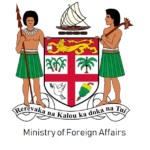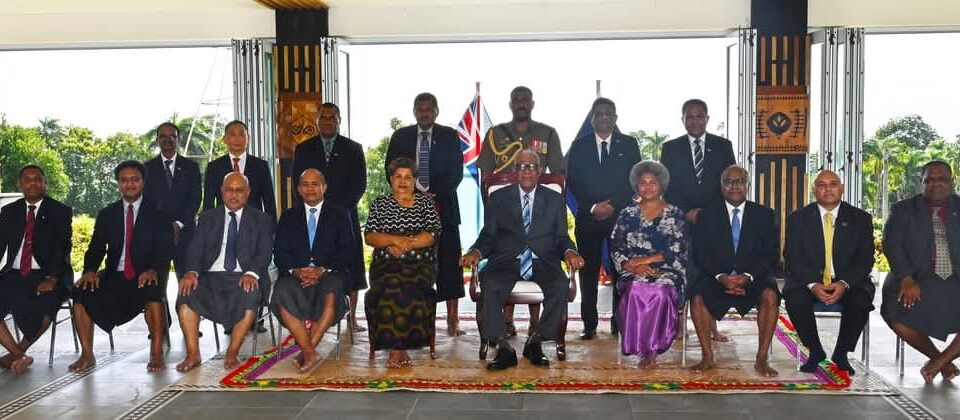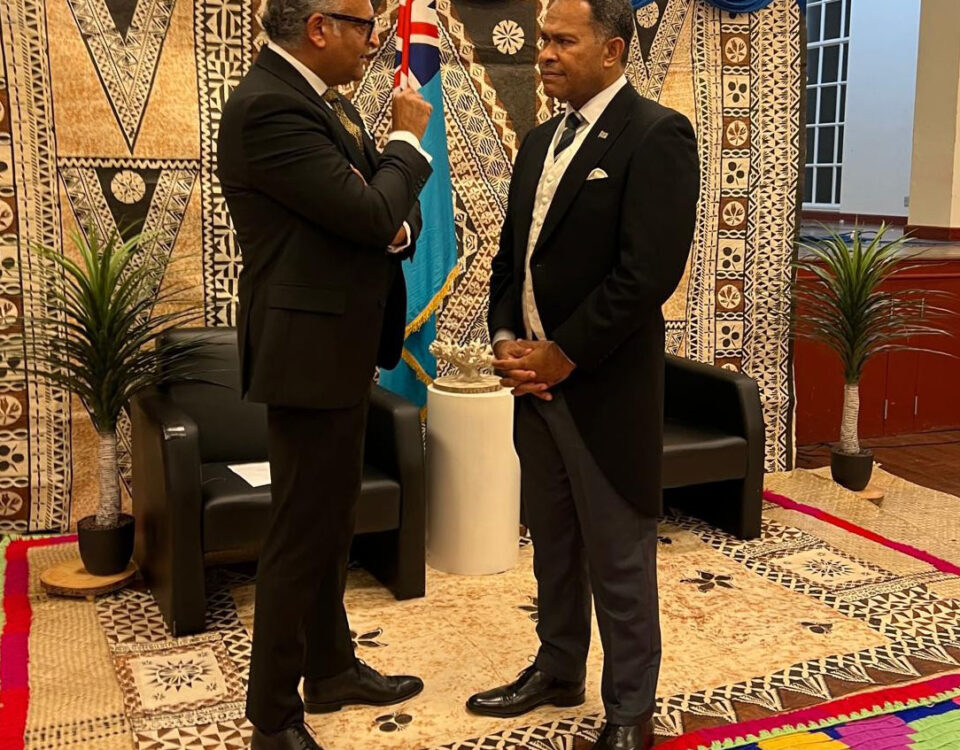
Statement by Minister Mereseini Vuniwaqa on the Pacific Women Leader’s Meeting Responding to the Impact of COVID-19 on Women and Girls in our Region
05/06/2020
Prime Minister Voreqe Bainimarama’s Statement on COVID-Safe Economic Recovery
21/06/2020Published On: 09/06/2020
Intervention
Dear colleagues, by now most of us have experienced firsthand how the COVID-19 pandemic, impacts our lives – our ability to leave home, work, go to school, or access public and health services. However, these impacts are not the same for everyone. We know that disease outbreak affects women and men, boys and girls differently, and that pandemics exacerbate gender inequalities. These gender inequalities will have profound impact on the lives of women and girls.
To me, recognising the extent to which a pandemic affects women, men, boys and girls differently is a fundamental step to understanding the primary and secondary effects of a health emergency and for creating effective, equitable policies and response interventions.
Fijian women made so far significant and critical contributions to address the COVID-19 pandemic as key front-line responders, counting doctors, nurses, lab workers, midwives, social workers, hospital cleaners, market vendors, food producers, farmers and primary care givers at home. 63% of health workers and 85% of market vendors in Fiji are women, placing them at increased risk and exposure to infection. We could stay home safe during the lock down, knowing that we can count on them.
Women in Fiji are also overrepresented in the sectors and jobs which are hardest hit by COVID-19– tourism and hospitality, handicrafts, manufacturing and agriculture– and in the most vulnerable types of employment with the least protection, such as workers in the informal employment, including the self-employed, domestic workers, daily wage workers and contributing family workers.
Global data confirms that since the outbreak of COVID-19, reports of Violence against Women and Girls (VAWG), particularly domestic violence has increased across the world. In Fiji, there has been too a significant increase in calls to the domestic violence national helpline (1560).1560 recorded total of 87 calls in February and 187 calls in March. In April we had 527 genuine calls to the national helpline. 54% of calls were domestic violence related while close to 50% of women are reporting a correlation between COVID-19 and an increase of violence, linked directly to the restrictions of movement and economic strains on families.
Fijian Government recognizes the gendered impact of COVID-19, and is prioritizing the importance of gender responsive national response and recovery in fighting the effects, which is further compounded by the devastation caused by TC Harold (THC). Ministry for Women, Children and Poverty Alleviation (MWCPA) has been working closely since the start of the outbreak and trail of the destruction of TCH with relevant stakeholders in advocating and coordinating responses that meet the immediate needs of all women and girls while ensuring to reach those left furthest behind.
On that note, Ministry of Women, Children and Poverty Alleviation efforts and immediate response to COVID-19 and TCH included:
A COVID-19 Response Gender Working Group has been formed to undertake a rapid gender analysis on the impact of COVID-19. The Working Group is led by the MWCPA and includes representatives of civil society and women’s rights organizations as well as UN Women. The Working Group developed a Guidance Note and info-graphic knowledge sheets to contribute to an effective, gender responsive and coordinated COVID-19 national response and recovery packages. The guidance note which has been noted by the cabinet highlights the gendered impacts of COVID-19 in Fiji on selected sectors and important issues such as violence against women and girls (VAWG) while providing brief analysis and recommendations.
A Gender-Based Violence (GBV) Working Group has been formed under the Fiji Safety and Protection Cluster to rapidly advance prevention and response to VAWG during emergencies. The GBV Working Group is led by the MWCPA, Fiji Women’s Crisis Centre (FWCC) and UN Women and works in partnership with frontline service providers. The GBV Working Group has developed information, education, and communication materials such as resource kits and virtual training for frontline health care workers, community workers and helpline, social welfare and other frontline GBV responders during COVID-19 and THC emergency response period. The resource kit provides essential information and key guidance for responding to gender, children and protection related cases and includes a list of emergency numbers, as well as names and numbers of organisations that are operational during emergencies. A national prevention communication campaign also developed, starting with texting messages sent to all users of Digicel and Vodafone across Fiji; messages from national and community leaders soon to be shared through radio, television and online; as well as posters, stickers and other materials, highlighting prevention messages and promoting services.
Dear colleagues, during this process, we were reminded again, it is not only key to initiate the work rapidly in response to a crisis, but strategically and most importantly in coordination, collaboration, and partnership with all relevant stakeholders in particular women’s rights and community based organizations.
Concluding Remarks
It is hard to imagine what the world will look like a few months from now. This pandemic will no doubt change the way we live and the structures that underpin how our societies function. But there is reason for hope. Crises, while devastating, can open up opportunities for transformation. This is our moment to advocate and build a system that is capable of delivering gender equality. Maybe, finally we have a chance to end up with a world that is safer and more inclusive for everyone. We can only re-establish trust and rebuild solidarity by challenging injustices and promoting the rights, safety, economic security and dignity of all.
This means: 1) Putting all women and girls as well as women’s rights organizations at the heart of the COVID-19 response and recovery efforts 2) Ensuring that gender based violence services and prevention measures are in place, well resourced and effective 3) Recognizing women’s unpaid care work that is sustaining us through this crisis and promote an inclusive economy that works for everyone 4) Underpinning women’s economic resilience and security by extending social protection and employment benefits to care providers at home, women informal workers, self-employed women and women owned Micro and Small businesses, 5) Ensuring gender responsive national socio-economic and health assessment and collection and analysis of sex, disability and age disaggregated data and 6) Continuing to advocate measures and policies to promote gender equality and empowerment of all women and girls.
I would like also to conclude that no single fix strategy or plan will erase the entrenched and often unconscious systems of gender bias in our societies; there must be many fixes, tailored to the specific conditions that prevail in each country and each region. As for Fiji, this involves looking beyond simply the gaps but also addressing attitudes and social norms that structure the power relations between women and men. Attitudes and social norms that are embedded in gender inequality, gender discrimination and patriarchy.
Vinaka





